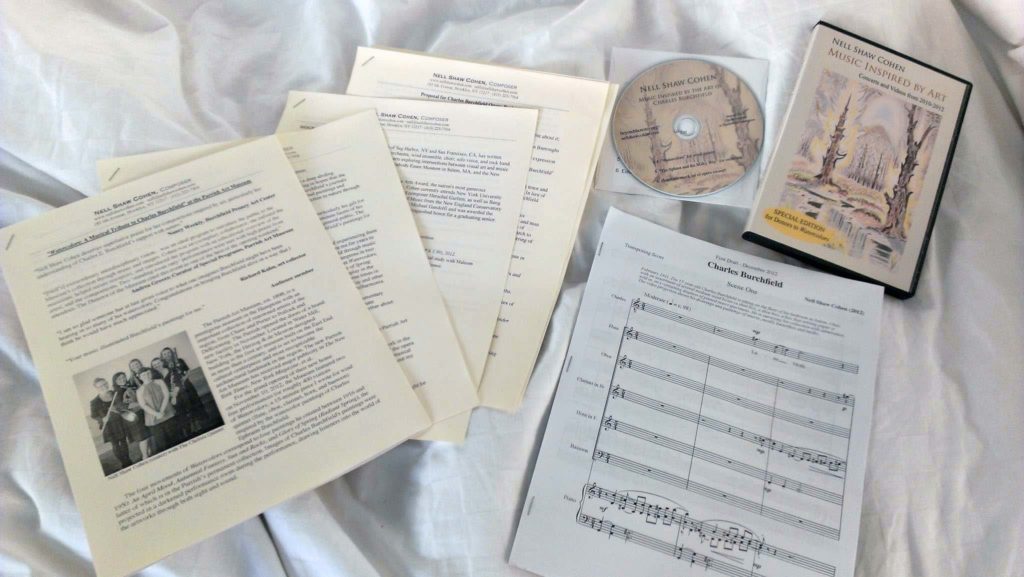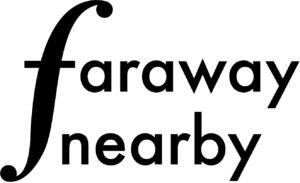For National Small Business Week (May 1-7) I’d like to take a moment to highlight self-published composers as small business owners, and to offer some personal reflections on the topic of independent music publishing.
I’ve often come across references to self-published works defined as “unpublished” works; or sentiments that composers might distribute their own work by default, but couldn’t be a “real” publisher. In practice, though, this clearly isn’t true!
Traditional publishing houses may have the capacity to accomplish things that a composer might not always be able to do for their own catalog. And not every composer necessarily thinks of themself as a publisher, or approaches their publishing work with intentionality. But there are composers out there operating (or co-operating) their own independent publishing businesses with significant skill and seriousness. Just a few powerhouse examples that come to mind: Alex Shapiro (Activist Music), Jennifer Higdon (Lawdon Press), and Melissa Dunphy (Mormolyke Press).
It’s important and consequential for folks both within and adjacent to our field to acknowledge the work that composers may choose to take on as their own publishers. Many of us routinely employ a set of skills that go far beyond the act of artistic creation, and that labor adds value to each of our projects.

Speaking personally: I am a composer, librettist, and multimedia artist, writing concert music and opera. I’m also the sole proprietor of a music publishing business named Faraway Nearby. I consider my composer-side and publisher-side to be two separate roles that I fill, with complementary but distinct responsibilities; what Dennis Tobenski (composer and founder of NewMusicShelf) has described as “a bifurcated existence.”
While I’m certainly open to working with other publishing companies on a project-by-project basis—I’m honored that Presser is publishing some of my pieces for solo harp in a forthcoming anthology—the ownership that I retain over most of my musical catalog is deeply important to me. (A traditional publishing deal usually entails signing over the copyright to your work.) I also take pride in the skills I’ve been developing over the years to connect musicians, educators, audiences, and presenters with my music, and to advocate for fair terms and compensation for my music.
My approach is informed by my upbringing and education. I was fortunate to be raised by two self-employed parents: partners in their small businesses, which have encompassed a range of enterprises from documentary films to medical journalism. They helped and encouraged me to bolster my creativity with entrepreneurial thinking from a young age. My training in college through New England Conservatory’s Entrepreneurial Musicianship department further strengthened my interest in developing skills to advocate for my work and to be effective as an artist in the world.

As an independent publisher, I wear many hats that might constitute a full-time job, or even a department, within a big publishing company. (For more on this, listen to Carol Ann Cheung, Director of Publicity and Marketing at Boosey & Hawkes, give an overview of how Boosey & Hawkes operates.) My intention in pointing this out is not in any way to downplay the effectiveness and immense expertise of a traditional publisher (or to overstate my own expertise), but rather to emphasize that self-publishing can entail specialized skills and labor that would be considered valuable to a traditional employer.
To illustrate this, here’s a list of some of the tasks I do for my catalog of works that might be carried out by a traditional publishing company (or some combination of publisher and others, depending on the nature of the publishing deal*). In no particular order:
- Engraving
- Inputting, formatting, and proofreading compositions in Dorico and/or Finale professional music notation software.
- Preparing layouts for industry-standard full scores, reduction scores, and instrumental parts (which may include dozens of meticulously selected cues and page turns).
- Marketing
- Maintaining an up-to-date, categorized, and searchable online catalog of works, including recordings, performance history, program notes, blog posts, and online perusal scores.
- Maintaining a social media presence and email newsletter.
- Developing relationships with artists, presenters, and organizations, ranging from individual musicians to art museums, to advocate for my works and to cultivate sales, licenses, and performances.
- Production and Sales
- Market research: pricing my catalog based on instrumentation, duration, genre, and audience.
- Responding to inquiries with personalized customer service.
- Creating and tracking invoices.
- Printing, binding, and shipping hard copy scores and parts (in the past; my sales are exclusively digital at this time).
- Preparing PDFs with individualized watermarks for digital purchases.
- Accounting
- Distributing royalty payments to collaborating writers and copyright owners of licensed materials.
- Tracking and reporting all income and expenses on my Schedule C form (small business taxes).
- Licensing
- Registering works with ASCAP, and tracking and reporting performances to collect royalties.
- Registering works with the Harry Fox Agency and Mechanical Licensing Collective to administer mechanical licenses and collect royalties on commercial recordings.
- Writing and negotiating contracts for project-specific synchronization licenses and Grand Right licenses.
- Purchasing licenses from other publishers for the use of copyrighted texts or visual materials in my works.
(Of course, there’s always room for growth in my practices, which have been developed over time through research, asking for advice, and trial and error. My approaches are continually evolving as the demands of my career evolve to push the boundaries of my prior knowledge.)
I’ve seen other self-published composers promoting their catalog at industry conferences; producing and publishing interactive or electronic elements with their works; creating synthesized realizations of their pieces for marketing; and the list goes on.
A composer’s indie publishing business may be on a far smaller scale than a publishing house that represents a long list of writers. Regardless, publishing can essentially become a second (or third or fourth) job. The work I do to get my music “out there” easily takes as much time and energy as the actual act of writing notes in a score.
There are practical implications to acknowledging the labor that we do as composers-who-are-publishers. To draw a comparison to the film industry: an artist might work on a project as both an actor and a screenwriter. In this scenario, a professional would have representation from two different industry unions (SAG-AFTRA and WGA, if working in the U.S.); receive credit for both of their roles; and be paid for both of their distinct contributions to a project. In short: one individual doing two jobs is credited and compensated for both jobs. This commonsense standard should be universally understood, regardless of industry.
I hope this post may have helped to demystify this rather niche topic! If you’d like to learn more about composers who are self-publishing, I’ve linked a few resources that I find interesting and informative below.
Happy Small Business Week,
-Nell
Further Reading & Listening
- Dennis Tobenski, Music Publishing Podcast and The Composer’s Guide to Doing Business
- “Composer on Fire” Podcast, Ep 60 – Alex Shapiro Pt 1 on Self Publishing and Consortiums and Ep 61 – Alex Shapiro Pt 2 on Being in Control of Your Career
- NewMusicBox, Self-Published Composers Explain What They Do and Why
- American Composers Orchestra & American Composers Forum, Publishing, Self-Publishing, & Management Webinar
- Garrett Hope, The Portfolio Composer Podcast
(* My understanding is that composers working with a traditional publisher, depending on the nature of the publishing deal and comprehensive it is, might still take on many of these tasks themselves. Or they might support or outsource their work with some combination of publisher, agent, manager, music distributor, publicist, et al to cover all their bases. My essential point, though, is that many of us do work that goes far beyond “just” being an artist.)